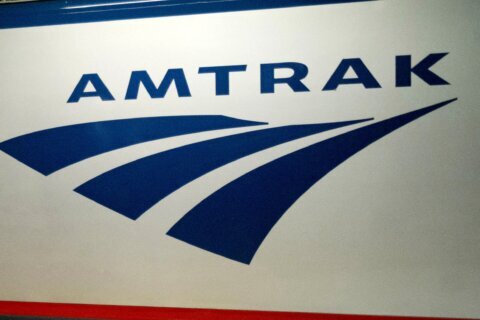WASHINGTON — The new Metro Board chairman wants to avoid fare hikes at any point in the near future.
“I do not support increasing fares now, or into the future,” D.C. Councilmember Jack Evans says. “I think Metro is very expensive as it is, and I think if there’s going to be additional things that we have to pay for, we’re going to have to look for other sources of revenue, whether it’s the federal government, the jurisdictions, or whatever [else].”
Metro’s proposed budget for the fiscal year that begins this summer keeps fares flat, but under previous board policy, a fare hike could be proposed for the following year.
Now that he is the board chairman again, Evans says he will try to use the bus and rail system more often. He hopes to visit all 91 rail stations.
Evans cites his home in Georgetown, about a mile or so from the nearest Metro station, as a reason he does not ride the system more often, and drives instead.
When reminded the 30N, 30S and 33 buses run right from Georgetown to D.C.’s government seat at the Wilson Building, he said he’d been considering using the bus and will give it a whirl.
Overall, he believes he can help improve Metro and boost its sagging image.
“Big fan of Metro, and always have been, and I want to make Metro … really the shining example of success for this region, so I’m excited about the challenge,” he says.
“On the City Council in the District of Columbia, I am viewed as a person who knows how to count to seven, who can get the number of votes that are needed and can actually bring everybody along. And I think that skill set that I’ve developed over the last 25 years on the D.C. Council, which is a 13-member council with a lot of different personalities, is a great skill set to bring to a 16-member board with a lot of different personalities,” Evans says.
Last Monday’s free rides
When Metro reopened in segments on Monday following the blizzard, Metro general manager Paul Wiedefeld announced that all rides on both bus and rail would be free.
However, the Metro tariff, which defines fare policies, says that no Metro “agent or other employee shall have the authority to change or deviate from the fare, charges, or rules and regulations,” with only one exception.
The exception allows the general manager to “lower fares from peak fares to off-peak fares for a period not to exceed 48 hours if it is apparent that significantly lower than normal service levels will be provided” in the event of a weather or other emergency that could not have been prevented.
The policy has no provision for waiving fares, and says that when fares are lowered from peak to off-peak, the Metro Board must approve the action at its next meeting.
No vote was taken at the Metro Board meeting Thursday regarding Monday’s free rides.
Metro did not cite any authority for the evident violation of policy, but several board members said they were happy with the free fares anyway.
“I haven’t talked to Mr. Wiedefeld about that, but I think it was the right thing to do,” Mort Downey told WTOP shortly after handing over the board chairman’s gavel to Evans.
Evans, who has chaired the board’s finance committee, said he was not familiar enough with the specifics to comment.
The Metro Board lays out policy for the agency; the general manager and staff are responsible for executing it.
There have been circumstances where staff have seen board policy as restricting actions they would like to take, including recently for a shortage of parts that has left dozens of railcars sitting in the shop waiting for repairs.







